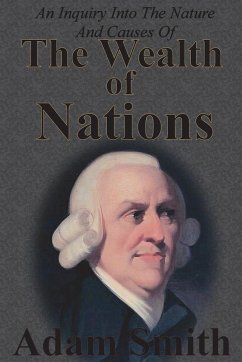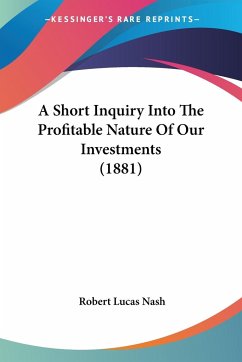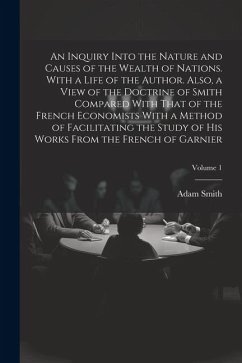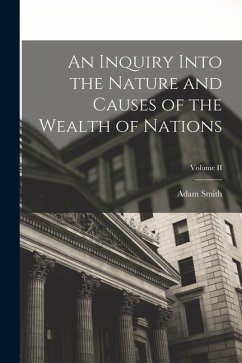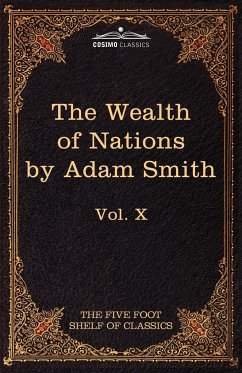
An Inquiry Into the Nature and Causes of the Wealth of Nations
The Five Foot Shelf of Classics, Vol. X (in 51 Volumes)
Herausgeber: Eliot, Charles W.; Bullock, C. J.
Versandkostenfrei!
Versandfertig in 1-2 Wochen
31,99 €
inkl. MwSt.

PAYBACK Punkte
16 °P sammeln!
Originally published between 1909 and 1917 under the name "Harvard Classics," this stupendous 51-volume set-a collection of the greatest writings from literature, philosophy, history, and mythology-was assembled by American academic CHARLES WILLIAM ELIOT (1834-1926), Harvard University's longest-serving president. Also known as "Dr. Eliot's Five Foot Shelf," it represented Eliot's belief that a basic liberal education could be gleaned by reading from an anthology of works that could fit on five feet of bookshelf. Volume X features the revolutionary work of economic theory from Scottish economi...
Originally published between 1909 and 1917 under the name "Harvard Classics," this stupendous 51-volume set-a collection of the greatest writings from literature, philosophy, history, and mythology-was assembled by American academic CHARLES WILLIAM ELIOT (1834-1926), Harvard University's longest-serving president. Also known as "Dr. Eliot's Five Foot Shelf," it represented Eliot's belief that a basic liberal education could be gleaned by reading from an anthology of works that could fit on five feet of bookshelf. Volume X features the revolutionary work of economic theory from Scottish economist and philosopher ADAM SMITH (1723-1790), still the basis of much of today's understanding of how the global economy works. Smith's proposals of rules governing labor and supply and demand remain powerfully influential, and his defense for free-market capitalism continues to garner something akin to religious devotion among some market watchers.



